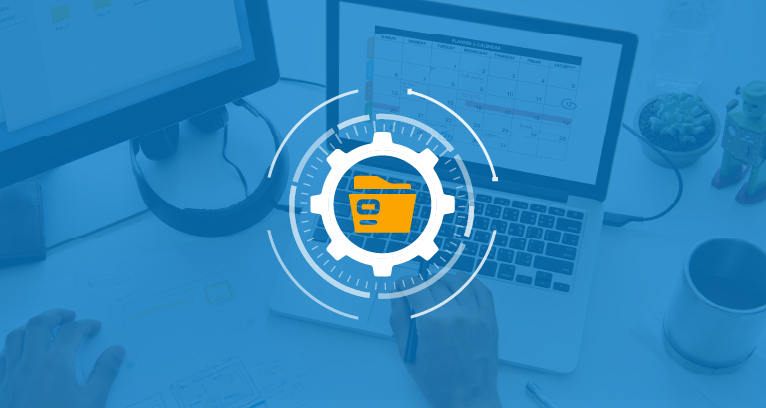Retail promotions are essential for driving sales, increasing customer engagement, and maintaining competitiveness. However, the workflow involved in planning, optimizing, and executing promotions remains highly fragmented, leading to inefficiencies, wasted resources, and missed revenue opportunities.
Retailers often face:
❌ Manual workflows that slow down execution and increase errors
❌ Disjointed collaboration between merchandising, marketing, and vendors
❌ Limited data visibility, making optimization difficult
❌ Unique challenges in fresh item promotions, where perishability, seasonality, and demand volatility complicate planning
To overcome these challenges, retailers need a more effective approach to manage their promotions.
The traditional retail promotion workflow and its challenges
Before exploring how AI enhances promotion workflows, it’s essential to understand the current process and the common pain points retailers encounter.
Merchandising: Defining promotion strategy and managing trade funding
Merchandising teams are responsible for defining category-level promotion strategies, managing vendor negotiations, and forecasting expected sales lift and margin impact. However, their decision-making is often hampered by siloed data, where reports are scattered across systems. This lack of centralized insights disrupts workflows, making it difficult to:
-
- Evaluate trade fund effectiveness
-
- Accurately forecast promotion ROI
-
- Move from reactive to proactive decision-making
Marketing: Aligning promotional campaigns and customer engagement
Marketing teams are responsible for ensuring that promotional campaigns align with the planned promotions, managing in-store and digital placements, and personalizing offers for target audiences.
However, the lack of seamless coordination with merchandising teams leads to delays and misalignment. Promotional messaging often becomes inconsistent across different channels, reducing effectiveness. Additionally, marketing teams often lack deep customer insights, making it difficult to tailor personalized promotions to individual preferences.
Vendor collaboration: Managing trade funds and joint planning
Vendors play a crucial role in retail promotions by providing trade funds and co-planning promotions with retailers.
Yet, manual negotiation processes—often handled through emails and spreadsheets—create workflow challenges:
-
- Lack of transparency in trade fund commitments
-
- Difficulties in tracking real-time promotion performance
-
- Missed optimization opportunities due to post-execution analysis
How AI transforms promotion workflows
AI-driven automation addresses these inefficiencies by optimizing each stage of the promotion workflow, enabling retailers to make data-driven decisions and execute promotions with greater precision.
AI-enabled merchandising optimization
AI enhances merchandising by:
✔ Optimizing trade fund allocation to maximize impact
✔ Predicting promotion effectiveness using machine learning models
✔ Providing real-time visibility into past, current, and upcoming promotions
Instead of relying on scattered reports, merchandising teams gain centralized insights to improve strategic planning and maximize ROI.
AI-driven marketing collaboration
AI enables marketing teams to:
✔ Synchronize promotional calendars for seamless alignment
✔ Personalize promotions based on purchase behavior and trends
✔ Track real-time performance and adjust campaigns dynamically
By streamlining workflows, AI ensures promotional messaging is consistent, timely, and targeted across all customer touchpoints.
AI-powered vendor collaboration
AI enables marketing teams to:
✔ Synchronize promotional calendars for seamless alignment
✔ Personalize promotions based on purchase behavior and trends
✔ Track real-time performance and adjust campaigns dynamically
By streamlining workflows, AI ensures promotional messaging is consistent, timely, and targeted across all customer touchpoints.
Retailers must move beyond manual processes and embrace AI-driven automation to create a more efficient and effective promotion management workflow. An integrated system that connects merchandising, marketing, and vendors in a centralized platform ensures seamless collaboration. AI-powered decision-making replaces guesswork with data-driven insights, helping retailers plan and optimize promotions with greater accuracy.
With advanced capabilities such as predictive analytics, automated approvals, and real-time reporting, AI enables retailers to plan high-impact promotions that maximize revenue and customer engagement.
Features like what-if-ing and AI-recommendations allow retailers to forecast the potential outcomes of different promotional strategies before execution, reducing risks and improving overall effectiveness.
Cognira’s PromoAI empowers retailers to optimize promotions through two complementary approaches, giving merchandising teams the flexibility to either take full control or leverage AI-driven insights to achieve their business objectives:
-
- User-Driven Optimization allows merchandising teams to take control through what-if scenarios. Users can simulate different promotional strategies—adjusting discounts, dates, vendor funding, or any other attribute —to instantly assess their impact on sales, margins, or ROI. This hands-on approach helps teams make more informed decisions by visualizing multiple outcomes before committing to a final plan.
- System-Driven Optimization harnesses the power of AI to generate recommendations based on the retailer’s objectives. Whether the goal is to maximize sales or boost margins, PromoAI automatically suggests the best promotions that align with those targets. These recommendations are not static — they adapt dynamically as market conditions, historical data, or business priorities evolve.
Conclusion
To overcome the promotion management challenges it’s important for Retailers to move beyond outdated processes and embrace AI. By leveraging a data-driven approach, they can streamline workflows, improve collaboration, and make smarter, data-backed decisions that drive profitability.
The future of promotion management lies in intelligent, automated workflows that eliminate inefficiencies and unlock new growth opportunities.

